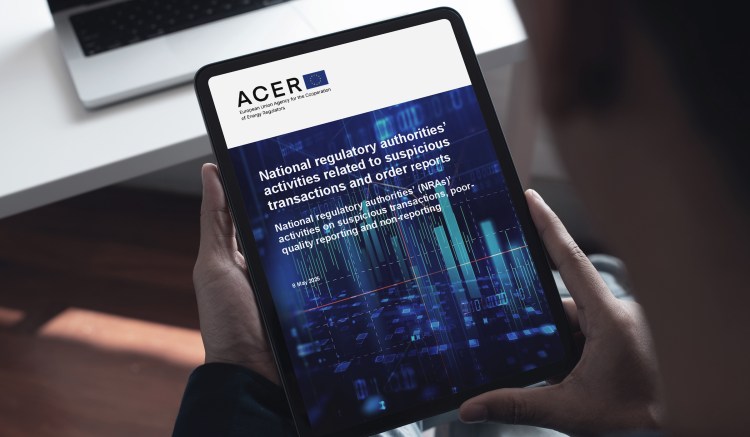
ACER shows suspicious transaction reports are rising across EU energy markets under new REMIT
The first-of-its-kind assessment looks at how regulators are processing reports of potential financial misconduct within wholesale energy markets and offers suggestions for PPATs to improve reporting amidst increased regulatory scrutiny.
Written by a human
In brief:
- The first annual ACER report on suspicious transaction and order reports (STORs) shows a significant increase in the number of investigations of potential REMIT breaches on the EU wholesale energy markets for 2024 compared the year prior
- A survey of NRAs that participated in the report highlights the need for more resources for both NRAs and PPATs as the number and complexity of potential breaches increases
- The report comes with several suggestions for energy companies to improve PPAT surveillance practices, specifically concerning the obligation to disclose inside information
Last May, amendments to Regulation (EU) No 1227/2011 on Wholesale Energy Market Integrity and Transparency (REMIT) mandated the European Union Agency for the Cooperation of Energy Regulators (ACER) to publish annual reports on suspicious transactions and order reports (STORs). A full year later, the first annual report is packed with recommendations and advice for regulators and market participants as regulatory scrutiny heats up.
The report looks specifically to shine a light on how National Reporting Authorities (NRAs) analyze STORs related to potential REMIT breaches on EU energy markets. It also looks at NRAs’ responses to poor-quality reporting, non-reporting, and related activities such as enforcements or penalties.
More scope, more problems
In addition to mandating yearly reports, last year’s amendment expanded the scope of REMIT applications to third-country market participants making transactions in EU member states of wholesale energy products, even of derivatives and intra-day trading transactions, as well as introducing stricter data reporting requirements.
Going forward, these annual ACER reports will be an important source of data highlighting current NRA concerns and what persons professionally arranging transactions (PPATs) can do to improve surveillance efficiency and reduce potential fees and future compliance burdens.
The report shows a significant increase year-on-year (YoY) in the number of STORs as well as a growing complexity in the behavior described in the reported activities, suggesting a need for more efficient processes and resources by NRAS. In 2024, 102 STORs were submitted to NRAs and ACER. This marked an increase of 32%, up from 77 in 2023. As well as the number of STORs submitted, the quality of such reports has also risen.
| Potential REMIT breach | 2023 | 2024 |
| Market manipulation (Art. 5) | 69 | 84 |
| Disclosure of inside information obligation (Art. 4) | 2 | 11 |
| Insider Trading (Art. 3) | 4 | 2 |
| Combination of Articles 3, 4 and 5 REMIT breaches | 2 | 5 |
| Total | 77 | 102 |
In 2023, 56% of STORs were classified as “good quality”, whereas in 2024, 81% were classified as such. The report defines quality by “aspects such as completeness, clarity, timeliness, and the level of detail provided in the reports.” ACER highlights a negative correlation between STOR quality and processing time, suggesting that lower quality STORs take longer for NRAs to process as they require more time to integrate missing information and assess potential breaches.
Consequently, it’s important for NRAs to improve surveillance and reporting processes to increase the quality of STORs received as their numbers rise. ACER notes lower quality reports may also lead NRAs to deprioritize those cases in favor of high-quality reports of REMIT breaches, leaving them mired in the review stage.
What do NRAs have to say about it?
Following these observations, ACER also surveyed participating NRAs to better understand how they manage screening, prioritization, and analyzing STORs. Some of the largest concerns from the survey include:
- Need for stronger data: According to NRAs, “one of the key challenges in screening and prioritizing STORs is the lack of access to comprehensive, cross-market data.” This makes effective analysis and case prioritization difficult, especially when misconduct occurs across multiple venues.
- Lack of surveillance tools: Some NRAs listed “scarce resources” as a challenge to screening and prioritizing STORs. ACER recommends regulators focus on maintaining sufficient personnel and toolsets to handle an increasing volume of cases.
- Improved collaboration among NRAs: Survey responses reveal NRAs seldom make use of one another or additional regulatory bodies when assessing STORs. Not all reports will need collaboration, but ACER emphasizes an expectation of greater collaboration with other financial authorities, specifically STORs regarding market manipulation and insider trading of wholesale energy products that are classified as financial products.
Parting advice from ACER
ACER recommends NRAs focus on optimizing resource allocation and improving processes to increase prompt rejections of irrelevant reports. There’s also room to strengthen relationships between NRAs and PPATs to help improve the quality of STORs. For PPATs specifically, ACER published several suggestions:
- Enhance client interaction procedures: PPATs can update or improve client interaction processes to facilitate more effective monitoring, specifically defining “detect – analyze – notify – deter” procedures required by REMIT
- Use professional and certified tools: When applicable, PPATs should adopt certified surveillance systems tailored to their specific needs, as generic tools may prove inadequate
- Increase monitoring coverage: Expand surveillance systems to monitor all tradable wholesale energy products to detect potential cross-product manipulation, and aim to boost the number of regular audits
- Tighten up the ship: Structural separation can help prevent managers from potentially exerting influence over the content or submission of STORs; special care should also be taken to declare all potential conflicts of interest
It’s important for PPATs to heed this advice and strengthen both their reporting pipelines and relationships with NRAs, as last year’s REMIT changes prove there is a growing interest by regulatory authorities in safeguarding wholesale energy markets from manipulation and insider trading, expanding the scope of regulatory provisions, and increasing cooperation among agencies.
In 2024, 13 actions were taken against firms found to commit misconduct totaling an estimated €115m. ACER is also working with NRAs to boost its own investigations covering the wholesale energy market. Starting in 2025, ACER has established a new REMIT Investigations Department, and its cross-border investigations are set to begin in 2026.
Global Relay has 25 years of experience managing and monitoring communication data for highly regulated organizations, including the energy sector.
Find out more – https://www.globalrelay.com/solutions/energy/


